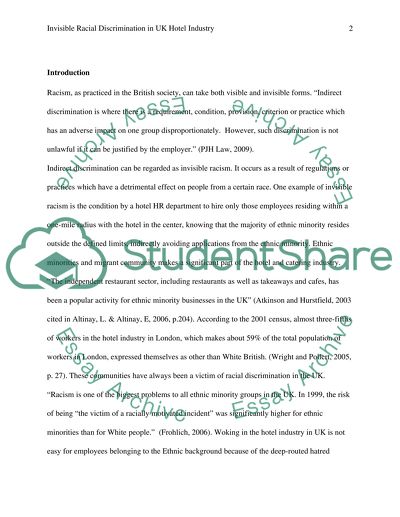Cite this document
(Invisible Racial Discrimination in the UK Hotel Industry Case Study, n.d.)
Invisible Racial Discrimination in the UK Hotel Industry Case Study. Retrieved from https://studentshare.org/social-science/1562689-invisible-racial-discrimination-in-the-uk-hotel-industry
Invisible Racial Discrimination in the UK Hotel Industry Case Study. Retrieved from https://studentshare.org/social-science/1562689-invisible-racial-discrimination-in-the-uk-hotel-industry
(Invisible Racial Discrimination in the UK Hotel Industry Case Study)
Invisible Racial Discrimination in the UK Hotel Industry Case Study. https://studentshare.org/social-science/1562689-invisible-racial-discrimination-in-the-uk-hotel-industry.
Invisible Racial Discrimination in the UK Hotel Industry Case Study. https://studentshare.org/social-science/1562689-invisible-racial-discrimination-in-the-uk-hotel-industry.
“Invisible Racial Discrimination in the UK Hotel Industry Case Study”. https://studentshare.org/social-science/1562689-invisible-racial-discrimination-in-the-uk-hotel-industry.


